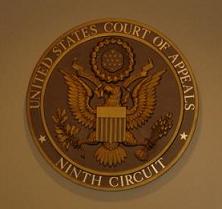Ninth Circuit: Goodwill was Corporate Asset, not Personal Asset, Upon Dentist’s Sale of Business
 Imagine you’re a hard-working CPA, trying to eke out a living in these troubled times. Ten years ago, you decided to go it alone, and set up your own accounting firm, a Personal Service Corporation (PSC) taxed as a “C” corporation.
Imagine you’re a hard-working CPA, trying to eke out a living in these troubled times. Ten years ago, you decided to go it alone, and set up your own accounting firm, a Personal Service Corporation (PSC) taxed as a “C” corporation.
As the sole shareholder and employee of your PSC, you’ve seen your blood, sweat, and tears single-handedly build your practice up from nothing to the thriving 1040 sweat-shop it is today. Along the way you’ve established countless client relationships and, as a result, a reputable name in the marketplace.
Your hard work hasn’t gone unnoticed, either. A rival CPA has recently approached you with an offer you simply can’t pass up: $1M to buy your practice. This is the day you’ve been anxiously awaiting for the past ten years, and you’ve got big plans for the money. Half of it you’ll spend on booze and fast women. The other half, you’ll waste.
Because your accounting practice doesn’t have much in the way of hard assets, the buyer is clearly purchasing the name and customer relationships; the “goodwill.” This begs the question…who owns the goodwill, the PSC, or you? After all, wasn’t it you who worked all those long hours and shook all those hands, not some faceless corporation?
It doesn’t take long to see why someone in this situation would prefer to treat the goodwill as a personal, rather than corporate-level asset. Assume $800,000 of the $1.0M purchase price is allocated to goodwill. If the goodwill belongs to the PSC, the PSC will pay corporate-level tax on the $800,000, with no reduced capital gains rates available under the current corporate tax regime. To access the cash, the shareholder will have to either liquidate the corp or take the $800,000 out as a dividend, generating the despised double-taxation (free promotion for the blog!) common to C corporations.
If, however, the shareholder treats the goodwill as a personal asset, the $800,000 purchase price will be subject to the 15% long-term capital gain rate, with no second level of taxation. Not a bad deal when compared with the alternative.
For this reason, it is common for shareholders of PSCs, upon selling the business, to take the position that the goodwill is a personal asset. Sometimes it works. Sometimes it doesn’t. Today, in U.S. v. Howard, 108 AFTR.2d 2011- (8.29.11), it didn’t.
Here’s why…
Larry Howard was a dentist. He incorporated his wholly-0wned dentistry practice as a PSC in 1980. During that same year, he entered into an employment agreement and a covenant not to compete with the corporation. The covenant provided that Dr. Howard, as an employee, would not practice in the dentistry business within a 50-mile radius of his PSC for 3 years after the date on which held stock in the PSC. It is this agreement that would be Dr. Howard’s undoing.
In 2002, Dr. Howard’s PSC sold its assets to another dentist. As part of the agreement, $549K was allocated to goodwill, which the asset purchase agreement (APA) indicated was owned by Dr. Howard personally. As a result, on his 2002 individual tax return, Dr. Howard reported the portion of the proceeds allocated to goodwill as a long-term capital gain.
The IRS disagreed with Dr Howard’s position, arguing that the goodwill was a corporate asset, the sale of which was taxable to the corporation and the proceeds of which were taxable to Dr. Howard a second time upon the subsequent deemed distribution. The IRS took this position for one major reason: Because Dr. Howard was an employee of the PSC with a covenant not to compete for three years after he no longer held stock in the PSC, the goodwill was a corporate asset.
The District Court, and subsequently the Ninth Circuit Appeals Court, sided with the IRS, holding that the goodwill was a corporate asset. In reaching its decision, the courts cited two prior cases which represent the leading authority on this issue, Martin Ice Cream Co. v Commissioner and Norwalk v C.I.R.
In Martin, the Tax Court established that “accrued goodwill can be attributed to an employee or to a company, depending on the employment relationship between the two.” The court added “goodwill of a corporation was an individual asset when the employer had not ‘obtained exclusive rights to either the employee’s future services or a continuing call on the business generated by the employee’s personal relationships.’” Thus, because Dr. Howard voluntarily entered into a covenant not to compete with his wholly-owned PSC, he effectively transferred his goodwill to the practice.
Similarly, in Norwalk the Tax Court determined that if an employee works for a corporation under contract and with a covenant not to compete with that corporation, then the corporation, and not the individual, owns the goodwill that is generated from the professional’s work. Even when a corporation is dependent upon a key employee — like in Dr. Howard’s dentistry practice — the employee may not own the goodwill if the employee enters into a covenant not to compete whereby the employee’s personal relationships with clients become property of the corporation.
Based on these two prior decisions, both the District Court and Ninth Circuit agreed that Dr. Howard doomed himself by entering into the covenant not to compete with his wholly-owned PSC. Both courts lended no credence to the language in the APA indicating that the goodwill was a personal asset belonging to Dr. Howard, as this would ignore the substance of the transaction, which was the sale of a corporate asset.
What Can We Learn? Martin Ice Cream established that the personal relationships of a shareholder-employee are not corporate assets when the employee has no employment contract with the corporation. Unfortunately for Dr. Howard, he had such an agreement. The decisions in Howard reinforce the already established position that only in the situation where a shareholder-employee has not entered into a covenant not to compete with his corporation-employer — thereby creating a valuable asset to the shareholder-employee that he can take elsewhere — can goodwill be treated as a personal asset rather than a corporate asset. For shareholder-employees of corporations in the service industry, this must be given careful consideration before entering into a covenant with the corporation.

